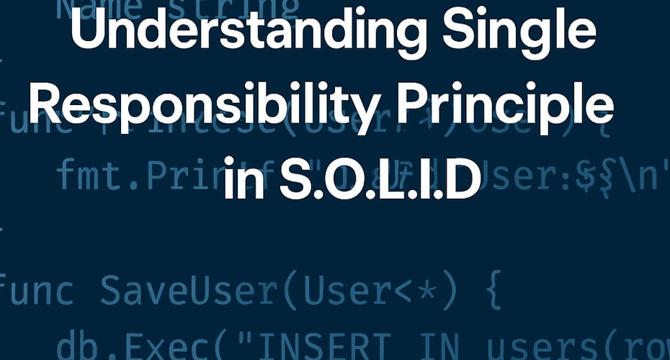Dev
4w
307

Image Credit: Dev
Understanding the Single Responsibility Principle in S.O.L.I.D
- S.O.L.I.D principles aid in writing flexible and scalable code, with Single Responsibility Principle (SRP) being the focus of this article.
- SRP dictates that a class/module should have only one primary responsibility to avoid complexity and maintainability issues.
- A real-world analogy illustrates SRP - like experts in a supershop focusing on specific tasks, code should segregate responsibilities too.
- An example demonstrates a violation of SRP where a class handles both database operations and email sending.
- Adhering to SRP involves separating responsibilities into dedicated methods or modules to avoid tight coupling.
- Common SRP violations include not adhering to the DRY principle, missing the KISS principle, and tight coupling.
- To achieve SRP, centralize shared functionalities, keep classes focused, and avoid tight coupling through composition.
- Benefits of SRP include reusability, easier debugging, simpler testing, better organization, and maintainability.
- Implementing SRP leads to better code quality, making maintenance, testing, and scaling easier in software projects.
- The article concludes by emphasizing the importance of implementing SRP and hints at covering the Open/Closed Principle in future blogs.
Read Full Article
18 Likes
For uninterrupted reading, download the app